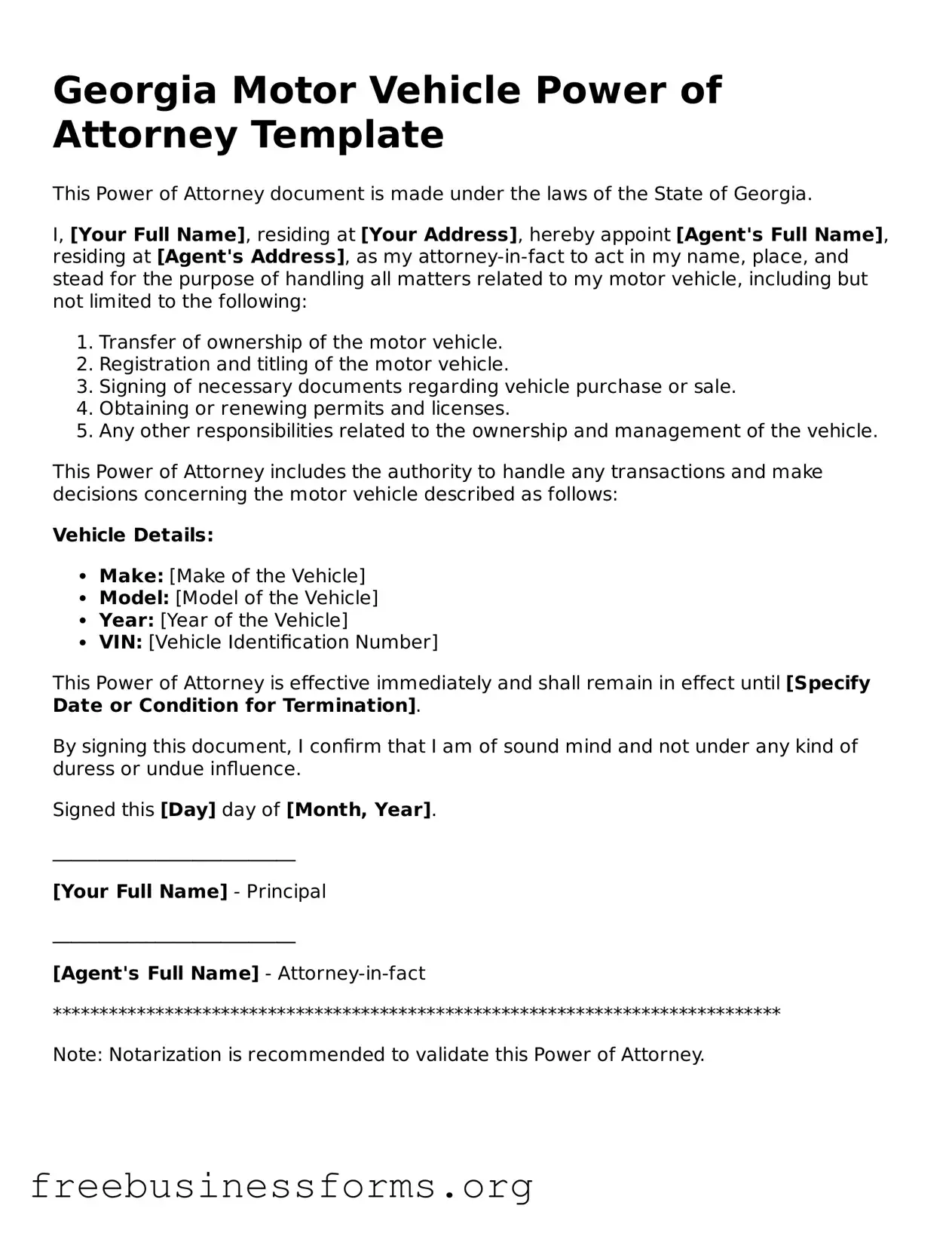Blank Motor Vehicle Power of Attorney Template for Georgia
The Georgia Motor Vehicle Power of Attorney form is a legal document that allows an individual to designate another person to act on their behalf regarding motor vehicle transactions. This form is essential for anyone needing to delegate authority for tasks such as title transfers, registration, or other vehicle-related matters. Understanding its implications and proper usage is crucial for ensuring smooth and lawful vehicle management.
Open Form Here

Blank Motor Vehicle Power of Attorney Template for Georgia
Open Form Here

Open Form Here
or
↓ PDF File
Quickly complete this form online
Complete your Motor Vehicle Power of Attorney online quickly — edit, save, download.